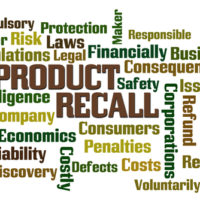When can a seller be liable for product liability?

Products liability claims usually center on the manufacturer of an item. The theory of liability is that at some point during the design or manufacture of the product it becomes unreasonably dangerous to people who use it in the way that it was meant to be used. Thus, for example, a car with a defective gas tank that can explode if the car is involved in an accident, or an airbag that either fails to deploy when it is needed or deploys when it is not needed can be considered as candidates for a products liability lawsuit.
But what about the person or business that sells the unreasonably defective product, does that individual or company share in potential liability? A standard practice of personal injury attorneys is to identify all plausible defendants when drafting a legal complaint, so that among them and their insurers there should be enough financial resources under joint and several liabilities to satisfy the plaintiff’s compensation requirements in the event of a jury award. In this light, sellers will invite scrutiny when a defective product causes injury or property damage.
Tennessee law anticipates the possible connection of sellers to dangerous products that they sell, and provides for the circumstances under which they may — and may not — be subject to liability. The rule is that as long as the seller has not had the opportunity to modify or otherwise tamper with the product as received from the manufacturer (that is, as long as the seller sells the product in the unopened packaging that it receives), the seller will not share in the manufacturer’s potential liability.
This general rule has exceptions. For example, if the manufacturer and seller are the same entity, then the manufacturer cannot attempt to hide behind its “seller” status to avoid liability. Also, if the plaintiff’s claim is warranty-based or in situations when the manufacturer cannot be reached under Tennessee’s long-arm jurisdiction, then the seller may also be exposed to liability for selling a defective product.
Each product liability claim needs to be examined on its facts to properly identify the appropriate defendants if a lawsuit becomes necessary. A personal injury law firm that is experienced with Tennessee products liability law will be able to help those injured by defective products to understand their legal rights and to pursue damages claims against all who may be legally responsible.











